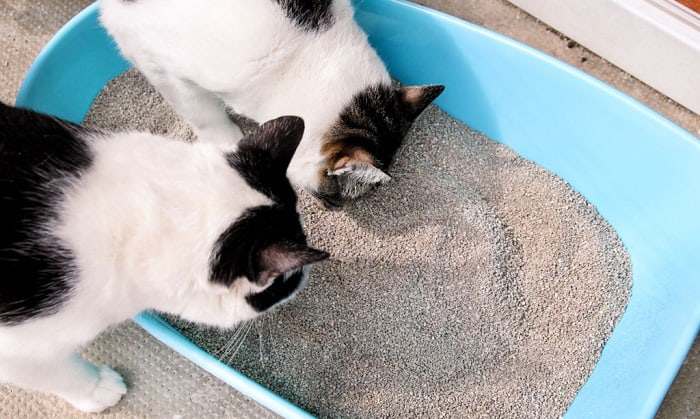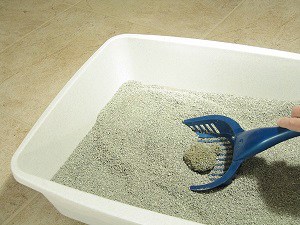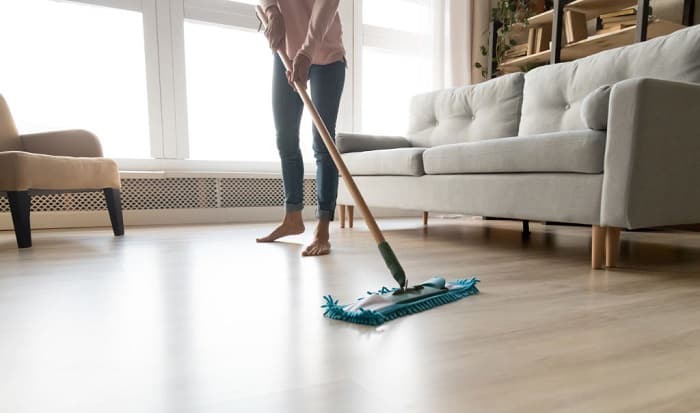In cats, worms are a frequent parasite. If the living environment is not clean or has parasitic worms, your pet is particularly susceptible to worm infection. Worms are rarely fatal to cats, but they can hurt your pet’s and family’s health. As a result, it is recommended to avoid and overcome parasitic worm infestations.
This article will answer, “when my cat has worms how do I clean my house” and help prevent them from coming back.
Table of Contents
My Cat Has Tapeworms How Do I Clean My House
Step 1: What to prepare
It’s best to prepare the following things to clean your house:
- Hot water
- Bleach
- Soapy water
- Vinegar
- Vacuum cleaner
- Steam cleaner (optional)
- Carpet shampoo
- Accelerated hydrogen peroxide
- Sprayer/power washer
- Hand washing liquid
Step 2. Clean the litter boxes
Before you clean your house after worms, the litter boxes should be your primary priority, especially if you’re dealing with a roundworm infestation. Because these worms are frequently spread by excrement, having a clean litter area here is critical.
After your cats have been treated, clean the litter box thoroughly with a hot water and bleach solution to destroy any remaining tapeworm or roundworm eggs. Don’t forget to clean the area around the litter box and the scooper!
Step 3. Clean the food bowls
Clean your cat’s water and food dishes with hot, soapy water followed by a hot rinse.
A modest quantity of vinegar or hydrogen peroxide can be used to disinfect. Allow it to rest for five minutes before rinsing thoroughly with hot water.
Step 4. Washing your cat’s bedding
All of your cat’s bedding, including its bed and any blankets, should be washed. In your washing machine, wash the fabric in hot soapy water and then dry on high heat.
Washing may need to be done daily until the worm threat has passed, which might take two to three weeks.
If at all possible, confine your cat to a single location during this period.
A follow-up appointment with your veterinarian may be recommended.
Step 5. Clean carpeted areas
When you clean house after cat has roundworms, you should wash carpeted areas if your house contains them. Cleaning your carpeted areas will ensure that the worms’ eggs are no longer there. Vacuum your carpet completely before shampooing it as usual.
You may also rent or purchase a steam cleaner to clean all of the carpets in the house. Buying one allows you to perform this procedure more frequently, but if you’ve given your animals the proper worm treatments, renting should be enough.
After you’ve finished normal shampooing, you may disinfect your carpet with accelerated hydrogen peroxide.
Hydrogen peroxide that has been accelerated is hydrogen peroxide that has been blended with other substances to make it more effective as a disinfectant. Before cleaning the entire carpet, conduct a test in an inconspicuous section.
If you don’t feel comfortable utilizing hydrogen peroxide, you can seek your local pet store’s advice. However, it should be noted that this substance has been thoroughly tested on various surfaces, including carpets, with positive results.
Step 6. Clean flooring thoroughly
Floors should be cleaned thoroughly and frequently. If you have wood or tile flooring, you should destroy the eggs by mopping them with a water/bleach solution. However, you may want to clean more regularly than usual for a while to ensure that all stragglers are caught.
Step 7. Clean the outdoors
Beside cleaning house after worms, you should clean the outside area where your cat plays.
Avoid using water from a hose or pressure washer to spray tapeworm or other parasite-infested surfaces; this will probably spread the infection instead of removing it. Use a sprayer or power washer and a bleach solution to clean solid surfaces like concrete.
Step 8. Maintain your cleanliness
Before they find a host, roundworms can reside in areas like the soil. So, if you’re a gardener, make sure you wash your hands well before touching the cat. While washing your hands after gardening may seem self-evident, cat owners need to be especially cautious.
You should also thoroughly wash your hands after touching the litterbox of a kitty. Scrub for approximately 20 seconds with warm water and soap.
What Are the Wormy Symptoms?
Because it is so simple for a cat to get worms, you must recognize the warning indicators. You can check:
1. Your cat’s fur
A cat’s hair is often glossy. If the cat has a worm infection, the coat will have a flat or dull appearance. This loss of luster indicates poor food absorption and dehydration as a result of illness.
2. Your cat’s gums
The cat’s gums should be pink, exactly like ours, if it’s in good health. The cat’s gums may also be white or pale, indicating that it’s anemic. Parasite infection is the most prevalent cause of the color change in the cat’s gums.
It would help if you place the cat next to you or on your lap to examine it. Then take the cat’s head in your hands, behind the ears, under the jaw. Raise the flap of the top lip to reveal the teeth. If you notice that your cat’s gums are pale, make an appointment with your veterinarian as soon as possible.
3. Your cat’s feces
If your cat uses a litter box, it will be much easier to accomplish this. Once you’re close to the samples, keep an eye out for any of the following signs:
- It might indicate blood loss if the stools are sticky and black. If hookworms adhere to the cat’s intestine walls, this might be the result.
- If the stool pieces are diarrheal, worms may have taken up residence in the gut. This means that the cat’s food is not being digested properly. If your cat develops severe diarrhea that lasts longer than 24 hours, you should take him to the doctor as soon as possible.
4. Your cat’s eating habits
If the cat is infected with a lot of worms, it may lose its appetite. A worm infestation takes up a lot of room in the stomach, inflames the gut lining, and produces stomach pains.
5. Your cat’s fatigue and exhaustion
The cat will seem listless, lack zest and energy, and be sluggish if the worms in the system are obtaining sustenance from the cat. Keep a watch on the cat’s demeanor to make sure you notice any significant changes.
Because this symptom might indicate a variety of illnesses (not just a worm infestation), it’s advisable to take the cat to the vet. Because you are familiar with the cat’s regular behavior and energy level, you should be able to detect if the feline’s playfulness decreases.
Frequently Asked Questions
Is it possible for me to become infected with my cat’s worms?
Yes, people may be infected with cat worms, particularly the elderly and youngsters close to an infected cat.
How often should I deworm her to keep my cat worm-free?
Because cats are susceptible to reinfection, deworming your indoor cat at least once every three months can help keep him healthy and clear of intestinal parasites.
Related: How long after deworming a cat are the worms gone?
Is it possible for cat worms to live in bedding?
Sacs holding viable eggs are usually seen adhering to the hairs surrounding a pet’s anus, in feces, or in locations where the creature sleeps, such as a human bed, indicating that cat worms may live in bedding.
If your cat has worms, she should not lie on your bed since worms might get into your bedding and create various issues.
Is it possible for tapeworms to live on furniture?
Tapeworms may live for several months on furniture.
On the other hand, they cannot develop or reproduce without a host, though they can live for months on end on furniture while waiting for a suitable host.
When should you clean your litter box after your cat’s been dewormed?
Litter boxes should be cleaned daily, if possible. This will also keep your cat happy and prevent it from producing messes in other places!
Final Thought
Hopefully, the info above answered the question, “when my cat has worms how do I clean my house?” Worms can create a slew of issues for both you and your cat. As a result, you must guarantee that your cat does not have a worm infection or that the infection does not transmit from your cat to you or your family.
When a cat is infested with worms, he may get exhausted. As a result, you should give cats extra attention and care. If your cat is in distress, you should take it to the veterinarian immediately!

I am Amy Sawy, a Doctor of Veterinary Medicine (DVM) graduate from the University of Kansas. y husband, Dr. Plummer, and I own a veterinary clinic in Phillipsburg, Kansas. In addition to my professional background, I am a devoted pet owner myself, with a household that includes dogs, rodents, and most notably, cats – a total of five felines in my home.
In 2020, I joined an organization as a professional writer, leveraging my experience and collaborating with my team to deliver the most valuable information for your cat’s care.


















